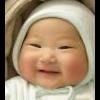Search the Community
Showing results for tags 'scams'.
-
I starting this thread to consolidate all the fake news that is circulating on the internet. I was once a victim. hahah. I remember a few months ago there is a video circulating of collapsing ceiling in Jewel Changi Airport. Share on my facebook and kenna whack. I know there is a lot of MCF vigilantes around so if everyone can help abit if you guys came across any fake news. Fraudulent website using fake comments from SM Tharman to solicit Bitcoin investments: MAS Read more at https://www.todayonline.com/singapore/fraudulent-website-using-fake-comments-sm-tharman-solicit-bitcoin-investments-mas SINGAPORE — A fraudulent website has been soliciting Bitcoin investments by using fabricated comments attributed to a senior minister, the Monetary Authority of Singapore (MAS) warned in an advisory on Tuesday (Dec 3). The website, attempting to pose as local news outlet The Straits Times, features comments falsely attributed to Senior Minister and Coordinating Minister for Social Policies Tharman Shanmugaratnam, who is also chairman of MAS. According to a screenshot of the website, the senior minister was falsely quoted as urging people to try a "cryptocurrency auto-trading program" called Bitcoin Circuit. The bogus article said the "new secret investment" was "making hundreds of people in Singapore very rich". "The information on the website is highly deceptive and misleading. The statements attributed to SM Tharman are completely false," the MAS advisory said. "The site asks for payments into a purported Bitcoin trading platform and tries to obtain credit card or bank account information from readers." MAS warned the public to exercise "extreme caution" and avoid providing any financial or personal information on the forms linked from the website. "Anyone who suspects that an investment could be fraudulent or misused for other unlawful activities should report such cases to the police," MAS said. There were similar cases earlier this year involving fabricated comments attributed to Prime Minister Lee Hsien Loong and Emeritus Senior Minister Goh Chok Tong. CNA Read more at https://www.todayonline.com/singapore/fraudulent-website-using-fake-comments-sm-tharman-solicit-bitcoin-investments-mas
-
China is known for many things, but they’re perhaps most infamous for their counterfeit items. From clothes to bags to electronics—even whole towns—China has it all. However, they’ve recently taken the counterfeit business a little further and have entered the disturbing realm of counterfeit foods. 10Plastic Rice If there’s one food that should be impossible to counterfeit, it would be rice. But the Chinese did it anyway. China’s fake rice is also called plastic rice. It’s made from potatoes, sweet potatoes, and synthetic resin molded into the shape of real rice. The faux rice was commonly sold in Chinese markets, especially in Taiyuan in Shaanxi Province. The rice remained as hard as stone even after it was cooked and did not digest easily. It’s also pretty dangerous, since consuming three bowls of it is equal to consuming one bag of vinyl, or one plastic bag. Aside from producing artificial rice, dishonest Chinese rice sellers also add flavors to ordinary rice and sell them to the unsuspecting public as “Wuchang rice,” which is more costly and generally considered one of the better brands of rice sold in Chinese markets. Only 800,000 tons of this Wuchang rice are produced annually, while about 10 million tons are sold. In other words, more than 9 million tons are fake 9Rat Mutton When they’re not tampering with rice, dishonest Chinese food sellers are adding chemicals to meat from rats, minks, and foxes and selling them as mutton. The scheme was so popular and successful that the police arrested more than 900 people and seized about 20,000 tons of this meat, all within three months. One of the sellers, a man named Wei, even raked in more than £1 million from sales alone. He mixed fox, rat, and mink meat with nitrate, gelatin, and carmine before selling it in markets to unsuspecting buyers. Chinese police posted a tutorial on Sina Weibo, China’s biggest microblogging site, to teach people how to differentiate between real and fake mutton. While the difference between them is hard to tell at first glance, the white and red parts of real mutton don’t separate after getting thawed, torn by hand, or boiled, while the fake meat does. 8 Chemical Tofu Tofu, also called soya curd, is a cheese-like food made from a mixture of soy milk and a coagulant. Chinese authorities recently closed down two factories in Wuhan, Hubei Province for selling fake tofu, which was made by mixing various chemicals together. One worker confessed that they combined soy protein with flour, monosodium glutamate, pigment, and ice to make the fake tofu before packaging it and selling it under the name of another company that was producing real tofu. Using soy protein to make tofu isn’t the most dastardly of deeds, but not all the schemes were so innocent. Another criminal gang made counterfeit tofu by adding rongalite, an industrial bleaching agent that’s been linked to cancer. Supposedly, the chemical made their tofu chewier and brighter. The syndicate was headed by three cousins who sold about 100 tons of the tainted product to the unsuspecting public. When police raided their factory, they found employees making the counterfeit food with grimy, unwashed equipment. 7Formaldehyde And Duck Blood Duck blood tofu is a delicacy in China. It’s made from blood extracted from slaughtered ducks. The blood is then heated until it thickens, allowing it to be cut into squares and sold. That’s strange already, but it gets worse: Sellers have been known to mix deadly ingredients like formaldehyde with much cheaper pig or buffalo blood, then sell the concoction as duck blood. Chinese authorities once broke a fake duck-blood ring that was being run by a couple in Jiangsu Province. In this instance, the couple wasn’t using pig or buffalo meat. Instead, they used chicken blood mixed with inedible dye and materials used for printing. One ton of fake duck blood was confiscated. The use of fake duck blood for duck blood tofu is so prevalent in China today that customers have become pretty good at spotting the difference between the real stuff and the fake stuff. 6Adulterated Honey There are two types of counterfeit honey: the adulterated one, which is a mixture of real honey and sugar syrup, beetroot syrup, or rice syrup, and the fake honey, which looks more like real honey than real honey itself. It is made from a mixture of water, sugar, alum, and coloring. One kilogram (2.2 lb) of fake honey can be produced for just 10 yuan (about $1.60) and sold for as much as 60 yuan ($9.50). About 70 percent of the honey sold in China’s Jinan Province is fake and, as usual, Chinese newspapers have offered instructions on how to differentiate between real and fake honey. Police raided several fake honey production sites where 38 buckets of honey were seized. China is the world’s biggest producer of honey, which it exports to other countries. A study revealed that 10 percent of the honey sold in France was fake and most likely originated in either East Europe or China. US Customs also busted a fake honey-smuggling ring made up of US honey producers. It was discovered that they had been bringing fake honey into the US from China via Australia. 5Contaminated Bottled Water Selling fake honey is one thing; messing with people’s water supplies is a whole other criminal ballpark. Police have recently uncovered a scam in which plastic bottles are filled with tap water or poorly treated water and sealed with quality standard seals—the same used by genuine bottled water companies. Among other things, the bottles have been found to contain E. coli and a stew of harmful fungi. More than 100 million bottles of this bacterial soup are sold annually, with the sellers raking in more than 1 billion yuan (about $120 million). For comparison, about 200 million bottles of water (both genuine and counterfeit) are produced in Beijing annually. The bottled water scam is not new and has been going on since at least 2002. It costs producers about three yuan to produce fake water, which can then be sold for nearly 10 yuan. Real bottled water costs six yuan to produce. 4Rotten Rice Noodles China’s counterfeit rice noodles are made from rotten, stale, and moldy grains which are usually used as animal feed. These are then mixed with cancer-causing additives such as sulfur dioxide to get the final product. And this isn’t a one-man show—almost 50 factories in Dongguan city were found to be in on the scheme, churning out 500,000 kilograms (1.1 million lb) of counterfeited rice noodles per day. Another inspection of 35 other factories showed that 30 of them were producing substandard rice noodles. Producers bleached spoiled rice and mixed it with additives to get triple the amount of rice noodles. Aside from using stale rice, some producers use flour, starch, and corn powders instead. These noodles usually have a very low protein content—as low as 1 percent compared to 7 percent for pure rice noodles and 4.5 percent for mixed rice noodles. Some pigs that were fed these fake rice noodles ended up with weak limbs and several other problems. 3Clenbuterol-Laced Pork Clenbuterol, also called “lean meat powder,” is an additive added to animal feed. It burns fat in the animals but can cause sickness, heart problems, unnecessary sweating, and dizziness in humans. Its use in animal feed began in the 1980s, but was banned in 2002 because of its health risks. However, some meat-processing companies still give it to their pigs because it makes their pork leaner, and leaner pork fetches more money on the market. To make matters worse, one of the companies involved is China’s largest meat processor and a subsidiary of Henan Shuanghui Investment and Development Company. The company issued an apology for the act, then recalled more than 2,000 tons of their pork. Twenty-four workers were sacked or suspended. In an attempt to minimize losses, the company’s shares were suspended to stop the scandal from affecting its stock price. The China Meat Association also tried to downplay the incident so that it would not damage the Chinese meat market. Between 1998 and 2007, China witnessed 18 outbreaks of banned clenbuterol, during which one person died and more than 1,700 people became sick. 2Fake Wine Fake and counterfeited wine is a big problem in China. China Central Television (CTV) reported that half of all the wine sold in China is fake. A lot of people in China’s wine industry also believe that about 90 percent of premium wines sold in China are fake as well. To counter the sales of fake wine, the Guangdong Provincial Wine Testing Center was founded to determine the authenticity of wines. Wine producers have joined forces with the government to produce an app meant to track wine bottles and cartons to determine whether they’re original or fake. The scam was simple: Counterfeit wine makers would use the original name, label, and design from expensive wine bottles, but would slightly alter the names and logos on theirs to differentiate them. Others would simply collect empty bottles from expensive wines and then refill them with dirt-cheap wine. Today, big hotels, restaurants, and auction houses break wine bottles after use to prevent them from being reused. During a raid on a fake wine-making syndicate in China, police recovered more than 40,000 bottles of counterfeited wine worth more than $32 million. The group had been buying cheap wine and dumping it into fake bottles from expensive wine brands. In 2012, police also recovered more than 350 cases of counterfeited wine in Shanghai. The total haul was worth about $1.6 million. 1Yangcheng Hairy Crabs Yangcheng hairy crabs are the most expensive crabs in China, so it’s no surprise that people would try to pass off regular crabs as the pricier breed. The real deal comes exclusively from Yangcheng Lake, but there are a few sneaky ways around that. For example, some sellers take water from Yangcheng Lake and put other crabs in it for several hours before selling them as Yangchengs. Others use chemicals on the crabs to make them look like Yangcheng crabs. Only 1 in every 300 Yangcheng hairy crabs sold is real. The total number of crabs produced from Yangcheng is less than 3,000 tons annually, but more than 100,000 tons of crabs are sold. To counter the fake crabs, the Suzhou Crab Business Association demanded that a plastic ring with a special numerical code be attached to one of the claws of each original Yangcheng hairy crab. That plan soon failed when sellers of the real Yangcheng hairy crabs sold their tags to those selling fakes. +Cardboard Buns Cardboard buns are made from cut cardboard mixed with chemicals and pork flavors. An investigation carried out by CTV showed a video of a seller making the buns, commonly called baozi, out of cardboard. The cardboard is first mixed with caustic soda—which is used in the production of soap and paper—and then cut before being mixed with pork and seasoning. The video went viral and was picked up by several international media organizations. The Chinese government responded this time, saying that the foreign media organizations had taken the news too far and that the fake buns were actually a hoax. The reporter who filmed the video was also arrested. The government said that he had done it to earn more audience ratings for the station.
- 22 replies
-
- 6
-

-

-
- fake food
- food scams
- (and 5 more)
-
Fifty-three more charges were piled on a car workshop owner on Wednesday over an alleged road accident scam, bringing the total number he faces to 81. Sollihin Anhar, 41, allegedly schemed with others to cheat insurance companies into processing claims for staged accidents between 2011 and last year allegedly defrauding insurance companies such as Liberty, SHC, Tokio Marine, China Taiping, AXA and NTUC. He is listed as a co-director of Partners Automotive, a car repair company that was registered in July 2012, according to Accounting & Corporate Regulatory Authority records. Deputy Public Prosecutor Hon Yi said the total amount involved in all the charges is about $729,000. The total amount disbursed by insurance companies is about $79,000. Source: http://www.straitstimes.com/news/singapore/courts-crime/story/car-workshop-boss-faces-53-more-charges-making-total-81-20140813
-
Last weekend I visited a Success Resources seminar with Robert Kiyosaki as the main speaker. I was wondering why these rich gurus like peng joon or Sandy JadeJe will wanna teach their secrets to others. supposedly secrets that can easily earn thousands every day or so. I am trying to be more positive and think of good reasons. i admit i am not those super selfless generous guys. I have my ways of trading and earning a good profit month to month, but I don't think I will openly share. i earned it the hard way and i don't dare to be responsible if someone learns and lose money. I have my ecommerce business that my company and I are working hard, but all these are like hardearned secrets we built up. Am I the odd one out? Or maybe coz I am not rich enough to be openly generous? I know this forex trader, he just opened his corporate office in marina bay, a nice trading floor. i put my money with him for 3 years, earning 3% per month and happy with it. so when he corporatised and planning to register with MAS for private fund, i ask him if he would be able to teach me more on forex, i don't mind paying to learn. this is a multi millionaire trader and he told me "sorry pal, i won't teach anyone.." i mean, that makes complete sense. i don't blame him for keeping his trading skills private. i just don't get it why so many gurus teaching their skills and knowledge for barely $2000 SGD (most of the courses at Success Resources are abt $1998 SGD) its so little. say one course has abt 100 particpates, thats $200,000 minus all the commission (credit card fees, payment for room, payment to Success Resources) maybe you get back only $120,000 or so? isn't that very little considering the skill sets they have can net them hundreds of thousands monthly easily? Why add competitors to their fields? i like to think they are nice generous people who really want to help the world, but i have this feeling I am the naive guy. just feel sad that so many people sign up, not sure how many will truly benefit from it.
-
Just to share, my friend got conned into buying discounted Oakley sunglasses online and I hope after reading this it would help to prevent others from getting conned. Some of you might receive links on your facebook and to be honest, they all look damn legit to me! here are some examples... don't be a victim. www.oakley2013-uk.com www.oakleyshopstore.com www.oakleyshop-sale.com http://www.online-oakleysale.com/
-
My dad told me he got one and will be cashing out soon at maturity. I google a little and it doesnt look optimistic.... http://www.reach.gov.sg/YourSay/BlogUs/tab.../3/Default.aspx? ssFormAction=%5B%5BssBlogThread_VIEW% 5D%5D&tid=%5B%5B8129%5D%5D
-
I guess this isn't new, but in times of recession, there may be more and more people coming out with similar antics. My uncle was about to drive off his lot when he heard a few hand-inflicted bangs on his boot. When he came out of the car to check what happened, a burly guy approached him and insisted his car banged his body. He claimed that he's injured and demanded compensation. There is no way that my uncle banged into him as he was driving forward instead of reversing. A large commotion started and that burly guy was joined by two more guys demanding compensation. A fight almost broke out and my auntie had to separate the guys by using her body as a shield for my uncle. Before a scuffle started, she pulled by uncle into the car and drove off amist the yelling of those guys. Perhaps we can share more road scams here to educate forummers
-
SINGAPORE Customs has been conducting a series of raids - dubbed post-clearance audits - on parallel importers suspected of avoiding tax by under-declaring the value of cars they import. Over the past two weeks, there have been three raids on importers housed at the Automobile Megamart in Kampung Ubi. The raids follow a widening discrepancy between the declared value of cars sold by parallel importers and equivalent vehicles sold by authorised agents. The lower the declared cost price of a car, the more competitively priced it can be on the retail market. A recent report in The Straits Times pointed out that such price differences could total more than $10,000 per car. Singapore Customs was not available for comment yesterday. The authority rarely confirms or denies such raids, but traders with shops at the eight-storey Automobile Megamart complex said enforcement officers from the agency descended on the premises three times in the last two weeks. Two raids took place yesterday and on Tuesday. Boxes of documents and even computers of as many as half a dozen companies were carted away. Mr Neo Nam Heng, president of the parallel importers' Automotive Importers and Exporters Association, sighed when asked about the raids, which he said had been taking place with rising frequency. 'All importers have to be aware of the consequences of the law,' he said. 'But unfortunately, not everyone is.' He noted that getting a car cleared by Customs has been 'fast and easy' in recent years. 'But getting a car cleared does not mean there's no problem. If you under-declare, there are going to be problems.' The Straits Times understands that under-declaration is fairly common, and the practice is affecting the profitability of businesses that declare correct values. Mr Ricardo Soh, proprietor of parallel importer Ricardo Cars, said: 'It's a bit of a disadvantage for us. If the Government can review the valuation method and have uniform values across the board, it will be good.' Singapore Customs had a dialogue with parallel importers last week to see if under-declaration could be overcome. Mr Neo said traders made some suggestions, including imposing after-sales taxes instead of the current practice of taxing before sales. 'They (Customs) said if there are changes, they can't be made immediately. Laws will have to be changed.' I am wonder which PIs kena raided






